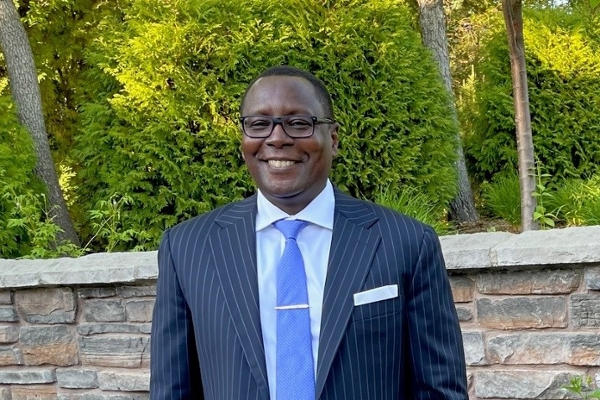
Dr. George Mutwiri
“Vaccine research is what brought me to Saskatchewan,” says Dr. George Mutwiri, a senior scientist at the Vaccine and Infectious Disease Organization – International Vaccine Centre (VIDO-InterVac) and interim executive director and professor in the School of Public Health.
“I became interested in studying vaccinology since I graduated in veterinary medicine in Kenya over 35 years ago. I realized early on that the best approach to dealing with infectious diseases is for the body to defend itself against infection.”
After earning his DVM from the University of Nairobi, Dr. Mutwiri completed a PhD in immunology and microbiology at the University of Guelph and a post doctoral fellowship at the University of California. He came to VIDO as a post-doctoral fellow in 1997 and has spent the past 25 years conducting research in vaccines against infectious diseases.
Since 2009, Dr. Mutwiri has also been sharing his knowledge with the next generation of public health leaders as a professor in the School of Public Health (SPH). “I continue to conduct some research at VIDO, but over the years I also became more interested in social-behavioural factors that determine the success of vaccination. It’s not just R&D that makes for a successful vaccine, it’s also vaccine uptake and hesitancy. We now appreciate that human behaviour plays a much bigger role in successful vaccination than previously thought”.
The COVID pandemic has turned a spotlight on vaccine hesitancy. “Vaccine hesitancy is one of the top ten greatest threats to global health,” Dr. Mutwiri says. He has a project on vaccine hesitancy and co-authored a recent paper to explore the issue and its impact on visible minority groups.
While he maintains active in research, Dr. Mutwiri has also become more involved in public health leadership. He was interim executive director of SPH from 2015-2017, and he took on the role again in 2021, when COVID was hitting the one-year mark.
“It has definitely been a challenging time,” Dr. Mutwiri says. “The pandemic has led us to take another look at how we train public health professionals and at the skills future professionals will need. One of the things we’ve seen very clearly is that public health affects virtually everybody. Public health professionals need strong leadership skills to build relationships and collaborate across sectors—health, education, business, government and community. We need to invest more in public health so we can find better ways to prepare, respond and recover in the next pandemic.”

